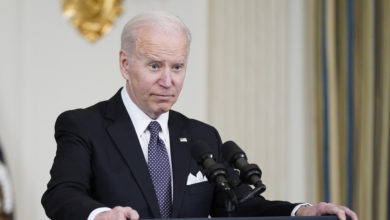Elon Musk Says He’s Terminating Twitter Deal, Board to Fight

EMusk declared that he is ending his $44 million offer to acquire Twitter. The deal was on the verge of collapsing. The Tesla CEO sent a letter to Twitter’s board Friday saying he is terminating the acquisition.
But Twitter isn’t accepting Musk’s declaration. The chair of Twitter’s board, Bret Taylor, tweeted in response that the board is “committed to closing the transaction on the price and terms agreed upon with Mr. Musk and plans to pursue legal action to enforce the merger agreement. We are confident we will prevail in the Delaware Court of Chancery.”
Twitter could have demanded a $1B breakup fee, Musk would agree to pay in these conditions. Instead, it looks ready to fight to complete the deal, which the company’s board has approved and CEO Parag Agrawal has insisted he wants to consummate.
The possible unraveling of the deal is just the latest twist in a saga between the world’s richest man and one of the most influential social media platforms. Much of the drama has played out on Twitter, with Musk — who has more than 100 million followers — lamenting that the company was failing to live up to its potential as a platform for free speech.
Twitter shares fell 5.5% Friday to $36.81. This is well below Musk’s offer of $54.20. Tesla shares rose 2.5% to 752.29.
Musk lawyer Mike Ringler wrote in the letter to Twitter dated Friday that for nearly two months, Musk has sought data to judge the prevalence of “fake or spam” accounts on the social media platform.
“Twitter has failed or refused to provide this information. Sometimes Twitter has ignored Mr. Musk’s requests, sometimes it has rejected them for reasons that appear to be unjustified, and sometimes it has claimed to comply while giving Mr. Musk incomplete or unusable information,” the letter said. It also said the information is fundamental to Twitter’s business and financial performance, and it’s needed to finish the merger agreement.
“This is a disaster scenario for Twitter and its board,” Wedbush analyst Dan Ives wrote Friday in a note to investors. In a note to investors, Dan Ives predicted that Twitter would fight for the agreement in court. He also suggested that Twitter will either get the $1 billion termination fee specified in the contract. “From the beginning this was always a head scratcher to go after Twitter at a $44 billion price tag for Musk and never made much sense to the Street, now it ends (for now) in a Twilight Zone ending with Twitter’s Board back against the wall and many on the Street scratching their head around what is next.”
Twitter wanted to clarify how spam accounts are counted in a meeting with executives and journalists on Thursday. Twitter claims it deletes one million spam accounts every day. These spam accounts make up less than 5% each quarter of the active user base. To calculate how many accounts are malicious spam, Twitter said it reviews “thousands of accounts” sampled at random, using both public and private data such as IP addresses, phone numbers, geolocation and how the account behaves when it is active, to determine whether an account is real.
Last month, Twitter offered Musk access to its “firehose” of raw data on hundreds of millions of daily tweets, according to multiple reports at the time, though neither the company nor Musk confirmed this. Private data, which isn’t available publicly and thus not in the data “firehose” that was given to Musk, includes IP addresses, phone numbers and location. Twitter stated that such data is used to avoid spam accounts being misidentified.
Ringler also claimed that Twitter breached the agreement when it fired the revenue product leader, general manager of consumer and announced the layoff of a third of its talent acquisition group. The sale agreement, he wrote, required Twitter to “seek and obtain consent” if it deviated from conducting normal business. Twitter was required to “preserve substantially intact the material components of its current business organization,” the letter said.
Musk’s flirtation with buying Twitter appeared to begin in late March. That’s when Twitter has said he contacted members of its board — including co-founder Jack Dorsey — and told them he was buying up shares of the company and interested in either joining the board, taking Twitter private or starting a competitor. Then, on April 4, he revealed in a regulatory filing that he had became the company’s largest shareholder after acquiring a 9% stake worth about $3 billion.
Twitter initially offered Musk a place on the board. Agrawal, however, tweeted six days later that Musk wouldn’t be joining their board. The company quickly accepted his offer to purchase it.
Musk had agreed to buy Twitter for $54.20 per share, inserting a “420” marijuana reference into his offer price. To help finance the purchase of Tesla, he sold shares worth approximately $8.5 billion to Tesla. He then increased his commitments by more than $7B from diverse investors that included Larry Ellison (Oracle co-founder) and Larry Ellison (Silicon Valley heavyweight).
Inside Twitter, Musk’s offer was met with confusion and falling morale, especially after Musk publicly criticized one of Twitter’s top lawyers involved in content-moderation decisions.
Twitter employees were ready for the deal. To prepare, they instituted a freeze on hiring, stopped discretionary spending, and fired two managers. In San Francisco, the company is also laying off employees.
Here are more must-read stories from TIME





